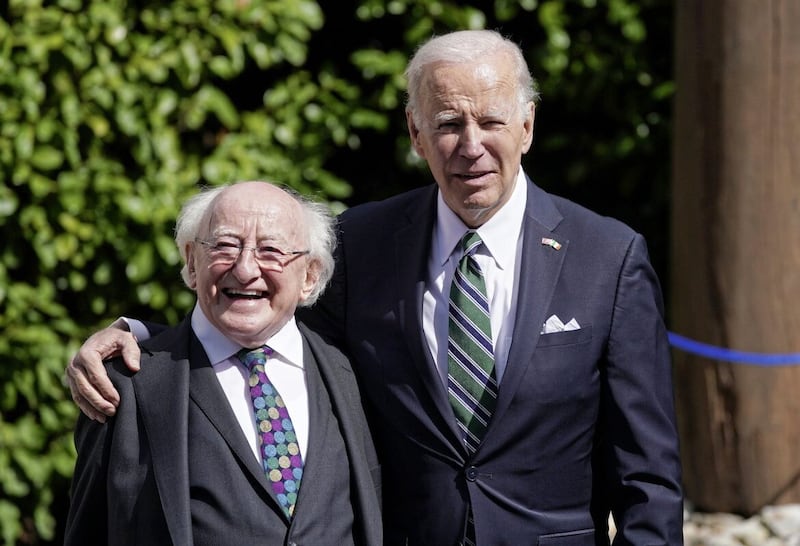At the end of April President Higgins gave a speech on economic policy in which he condemned the “obsession” with economic growth, attacked neo-liberalism and urged Ireland (by which he implicitly meant the government) to “rebalance economy, ecology and ethics”.
His speech didn’t go down too well in government circles and was heavily criticised by commentators and some letters to newspapers.
The main criticism seemed to be that his views were old-fashioned, outmoded and harked back to his days as a socialist TD. Others pointed out that sustained economic growth was what has produced the booming Irish economy.
However, it’s not booming for all and has left many behind, something which was at the heart of Higgins’s remarks.
None of Higgins’s critics noticed that almost simultaneously the US National Security Adviser, Jake Sullivan, made a landmark speech at the Brookings Institution entitled ‘Renewing American Economic Leadership’.
Adam Tooze, professor at Columbia University and director of the European Institute, said that in his speech Sullivan signified that the Biden administration “has buried neo-liberalism and declared a new Washington consensus”.
The content of his speech was remarkably similar to what Higgins said and built on a speech by US Treasury Secretary Yellen, the week before.
Sullivan sought to tie finance, economics and foreign policy together. His aim: to build “a fairer, more durable global economic order for the benefit of ourselves and for people everywhere”.
Read more: Brian Feeney: British government bad faith is real root of our ills
He criticised the set of ideas that “championed tax cutting and deregulation, privatisation over public action and trade liberalisation as an end in itself”. Included in this ‘set of ideas’ was “the assumption that the type of growth did not matter – all growth was good growth”, which meant finance was privileged over essential sectors like industry and infrastructure. It was called neo-liberalism.
One of its effects was the export of supply chains and jobs overseas. The result was the destruction of industry and livelihoods and the disaffection, disillusion and alienation of a large section of society in countries that saw the triumph of neoliberalism, like Britain where finance reigns supreme. The end result undermines democracy as in Britain, but nowhere more than in the US.
Sullivan, explaining Biden’s approach to the economy, said the plan is to build, to deploy government spending on an enormous scale. Biden’s Inflation Reduction Act (unfortunately IRA for short) of, wait for it, $369 billion, aims to give US industry an advantage in green transition. The days of tax cutting and small state are over. It hasn’t worked.

Sadly none of this sea change has penetrated the bone-headed Thatcherite worship that holds sway in Britain and keeps this place at the bottom of the pile in every respect.
On Monday the Guardian editorial, picking up on Biden’s new consensus, appealed for an industrial strategy for Britain to build manufacturing industry. Some hope. The Conservatives are still trying to reduce the state and cut taxes.
Shackled to the declining British state, the north has no coherent industrial strategy either, nor can it have. There was a DUP Economic Recovery Action Plan in February 2021, not exactly at the front of your mind, eh? A typically unfinanced, small-minded, introspective, worm’s eye view of the north, dead on arrival.
Britain has no regional development policy, surprise, surprise. Why would it when the government wants to minimise the state? Only a failed levelling up policy which has already cost scores of jobs here.
If there were a Stormont executive there’s nothing it could do to promote modern, green, hi-tech industrial expansion like the US and EU are advocating because it doesn’t have the financial clout to do it and no British government is going to step in to provide the wherewithal for the north.
Even if Sinn Féin were to take the economy ministry should a new executive emerge, they’d be hamstrung by the British government and the DUP would stymie any links to the south.









